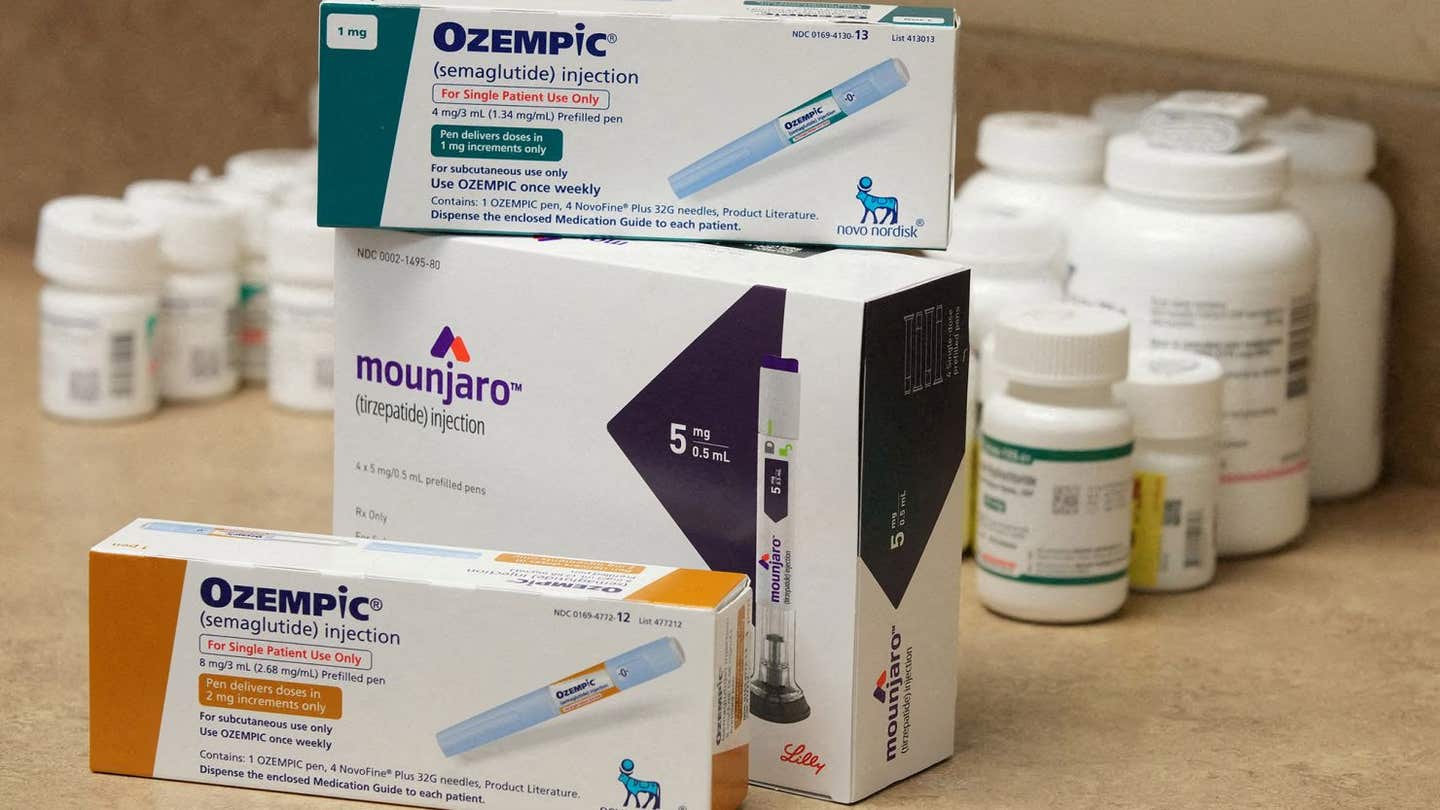Common diabetes drugs may protect against Alzheimer’s disease
A new study links popular Type 2 diabetes drugs to a lower risk of Alzheimer’s, pointing to promising brain health benefits.

Common diabetes drugs linked to lower Alzheimer’s risk in older adults, raising hopes for new uses in brain health. (CREDIT: George Frey)
Older adults living with Type 2 diabetes face more than just blood sugar concerns. New research shows some of the most commonly prescribed medications for managing this condition may also protect the brain.
A recent study led by scientists at the University of Florida suggests that two classes of diabetes drugs—GLP-1 receptor agonists (GLP-1RAs) and SGLT2 inhibitors (SGLT2is)—could lower the risk of developing Alzheimer’s disease and related dementias.
Common diabetes drugs tied to brain health
The research, published in JAMA Neurology, draws on Medicare data from tens of thousands of older adults diagnosed with Type 2 diabetes. Scientists compared individuals who were starting on GLP-1RAs or SGLT2is with those prescribed other types of glucose-lowering drugs.
The results revealed something striking: both classes of medication were linked to significantly fewer cases of dementia. The effect was strong enough that the researchers believe these medications might benefit the brain even in people who don’t have diabetes.
Lead researcher Serena Jingchuan Guo, M.D., Ph.D., an assistant professor in the University of Florida College of Pharmacy, said these findings open the door to new uses for diabetes medications.
“It’s exciting that these diabetes medications may offer additional benefits, such as protecting brain health,” Guo said. “Based on our research, there is promising potential for GLP-1RAs and SGLT2is to be considered for Alzheimer’s disease prevention in the future.”
Related Stories
What the data revealed
Researchers analyzed health outcomes for more than 90,000 patients using data from Medicare claims. Participants were all diagnosed with Type 2 diabetes. The average age of patients ranged between 63 and 66 years, and just over half were women.
In the comparison of GLP-1RA users versus those on other glucose-lowering drugs, the risk of Alzheimer’s and related dementias was significantly lower. The numbers showed a hazard ratio of 0.67, meaning these patients were 33% less likely to develop dementia. Similarly, SGLT2i users had a 43% lower risk, with a hazard ratio of 0.57.
The difference between the two drug classes themselves—GLP-1RAs and SGLT2is—was not statistically significant. That means both may be equally effective in reducing the risk of cognitive decline. The incidence rates of dementia in these groups were lower by 2.26 and 3.05 cases per 1,000 person-years, respectively, compared to people using other medications.
Beyond blood sugar: neuroprotective potential
GLP-1RAs and SGLT2is are already well known in diabetes care for helping regulate blood sugar levels. GLP-1RAs mimic a hormone that stimulates insulin release and slows digestion, while SGLT2is help the body eliminate excess glucose through urine. But both have effects that go beyond blood sugar control.
Recent studies suggest these drugs may reduce inflammation and improve circulation—both of which could benefit the brain. Some lab research has also hinted at protective effects on neurons, raising hopes that they could help slow or even prevent Alzheimer’s-related damage.
According to Guo, the neuroprotective effects observed in this study may be just the beginning. “As use of these drugs continues to expand, it becomes increasingly important to understand their real-world benefits and risks across populations,” she said.
Planning for the future of prevention
This research was conducted in partnership with William Donahoo, M.D., clinical professor and chief of the Division of Endocrinology, Diabetes and Metabolism at UF Health, and Steven T. DeKosky, M.D., deputy director of the McKnight Brain Institute. DeKosky is also a professor of Alzheimer’s research, neurology, and neuroscience in the Department of Neurology.
Funding came from two major U.S. health research agencies: the National Institute on Aging and the National Institute of Diabetes and Digestive and Kidney Diseases. Both are part of the National Institutes of Health.
While the findings are promising, the researchers stress that the study was observational. That means it can’t prove a direct cause-and-effect relationship between the drugs and reduced dementia risk. Still, the results point strongly in that direction.
The next step, Guo said, is to explore how these medications perform in people without diabetes. That includes seeing how they affect broader populations using real-world clinical data.
“Future research should focus on identifying heterogeneous treatment effects—specifically, determining which patients are most likely to benefit and who may be at greater risk for safety concerns,” she added.
This work is particularly timely. GLP-1RAs have seen a surge in popularity for treating obesity, and more people are taking them than ever before. If these drugs can also support cognitive health, their role in medicine could grow far beyond their original purpose.
What it means for families and patients
For patients with Type 2 diabetes, the benefits of these medications may extend well beyond blood sugar control. Preventing or delaying dementia could mean preserving independence and quality of life for years longer.
For caregivers and family members, that could mean fewer responsibilities and a reduced emotional and financial burden.
While it’s too early to recommend these drugs solely for brain health, doctors may consider their added benefits when choosing treatment plans. It’s a shift that could have a major impact on public health as more people age into risk for cognitive decline.
As scientists continue to learn how these medications affect the brain, this research marks a hopeful step toward reducing the impact of one of the most devastating diseases of aging.
Note: The article above provided above by The Brighter Side of News.
Like these kind of feel good stories? Get The Brighter Side of News' newsletter.
Rebecca Shavit
Science & Technology Journalist | Innovation Storyteller
Based in Los Angeles, Rebecca Shavit is a dedicated science and technology journalist who writes for The Brighter Side of News, an online publication committed to highlighting positive and transformative stories from around the world. With a passion for uncovering groundbreaking discoveries and innovations, she brings to light the scientific advancements shaping a better future. Her reporting spans a wide range of topics, from cutting-edge medical breakthroughs and artificial intelligence to green technology and space exploration. With a keen ability to translate complex concepts into engaging and accessible stories, she makes science and innovation relatable to a broad audience.



